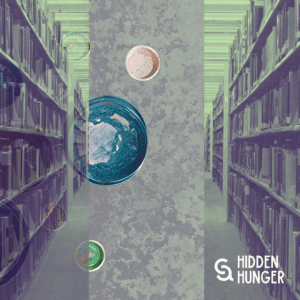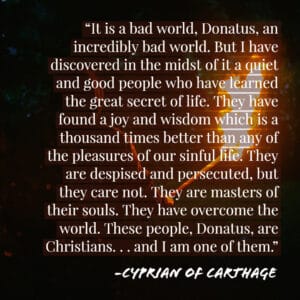 Many people will fondly remember the summer of 2021 as their “hot-vaxxed summer”: COVID-19 vaccines became more widely available, and thus a semblance of freedom and fun not felt for over a year was finally within reach. My “hot-vaxxed summer” consisted of reviewing countless articles, research, and data about food insecurity among college students.
Many people will fondly remember the summer of 2021 as their “hot-vaxxed summer”: COVID-19 vaccines became more widely available, and thus a semblance of freedom and fun not felt for over a year was finally within reach. My “hot-vaxxed summer” consisted of reviewing countless articles, research, and data about food insecurity among college students.
I was in the middle of my Master’s program. I was deep in the rabbit hole of attempting to understand the complexities of food insecurity and the unique destruction it wrought on young people when I came upon a news article from NPR. The report covered the fantastic ways the expanded SNAP benefits (Supplemental Nutrition Assistance Program) alleviated huge burdens from low-income students at community colleges. It also highlighted the realities of many community college students by sharing the story of a Native American student who lived in a camper trailer in Oregon and his desire for access to culturally appropriate foods. It was a beautifully heartbreaking article that helped me continue to humanize the numbers I was trying to fathom in my research. Part of my research consisted of understanding how our country viewed such stories, so I opened up the comments section to get a general sense of NPR’s audience opinion.
Why does this kid need welfare from the government, he’s so f***ing fat he looks like he’s doing fine.
When I was in college, all I had was ramen and pizza, and I made it all right. College students these days are so fragile and demand so much.
Whatever happened to just going to school and just shutting up? This is why liberal colleges are ruining the country.
This is why you never read the comments section.
The response to that article disturbed me, deeply angered me, and pushed me to ponder a few questions. What does our collective response to hunger and to young people say about us as a country? What does this say about the people of God? How does our collective experience about food inform how we build (or destroy) relationships and community?
The impetus for this paper (and the Master’s program) was rooted in my experience of ministering in a university and college parachurch ministry context. In 2014, I had the privilege of planting a ministry presence at San Joaquin Delta College in Stockton, California. Ready to do a good Bible study, I had successfully gathered a group of students in one of the many lounges on campus with the expectation that we would read and discuss a passage of Scripture together while eating the lunches we brought to campus. That day, and many days after that, my eyes opened to the realities of community college student life: “lunches” of bags of popcorn, chips, and soda, or, more often than I wanted to see, no lunch at all.
A significant question activated me: How can I proclaim to these students that Jesus is the Bread of Life when they are too hungry physically to hear what I have to say?
It is easy to fall back on familiar tropes of college students to minimize or wave away major systemic issues facing people in the higher education system. Stereotypes such as the “broke college student” or “lazy procrastinator” are a distraction from the reality of who college students are.
Data from the Lumina Foundation, an organization committed to equitable educational access, highlights that the typical college student of today works while attending school (64%) and is financially independent of their parents (49%). The Foundation also estimates that 31% of students don’t know where their next meal will come from. Temple University’s Hope Center for College, Community, and Justice surveyed over 190,000 college and university students in 2021 and revealed that 3 in 5 students faced basic needs insecurity, which the Center defines as “experiencing food insecurity, housing insecurity, or homelessness.”
At the start of that ministry planting experience, I couldn’t fully understand the why behind so many students’ hunger and struggle with classes. Being a campus minister forced me to see the invisible systems that made this typically exciting time of life an incredibly challenging burden.
Hunger is unique in that it is multi-faceted. We experience it personally in our bodies, and yet we can cook, purchase, or give food to others who are also hungry. Hunger is also a great equalizer. Every living creature gets hungry. In many ways, it’s a mark of our mortality and finitude.
But hunger is not solely a physical inconvenience at best or debilitating malnutrition at worst. It also signals us about the spiritual realities we operate in every day. Hunger exposes our privilege in how easily we can satiate ourselves and our children while masking the barriers endured by those without access and license. When college students struggle to eat daily because they cannot afford to, their hunger exposes our community’s unwillingness to see how policy shapes lived experiences. When students choose between eating or taking the bus home, their hunger reveals the unnecessary burden of decisions to survive rather than decisions to thrive.
Hunger in our bodies should point us past the snacks and meals to our True Bread and True Drink. To the One who multiplies the rationed lunch of five loaves and two fish into miraculous abundance that reshapes how we see ourselves, our communities, and how we live. When Jesus broke bread and told his disciples, “Do this in remembrance of me,” he did not only mean ‘share this meal as we are doing now.’ He illustrated what service to a hurting and hungry world will look like: The Church, his Body, broken for the world and distributed among the nations to feed the sheep. May we, as the Church, wherever we read this today, see ourselves as Bread and Wine for our communities and the college students among us.
 Julie Golingan Roberts is a social entrepreneur, food justice advocate and inclusion, diversity, equity, and access (I.D.E.A.) consultant with over a decade of serving marginalized communities on university and college campuses as a campus minister. She holds an MA in Social Entrepreneurship and Change and is the founder of ClearPlate Technology, a (very) early-stage startup bringing transparency and justice to food industry workers.
Julie Golingan Roberts is a social entrepreneur, food justice advocate and inclusion, diversity, equity, and access (I.D.E.A.) consultant with over a decade of serving marginalized communities on university and college campuses as a campus minister. She holds an MA in Social Entrepreneurship and Change and is the founder of ClearPlate Technology, a (very) early-stage startup bringing transparency and justice to food industry workers.


